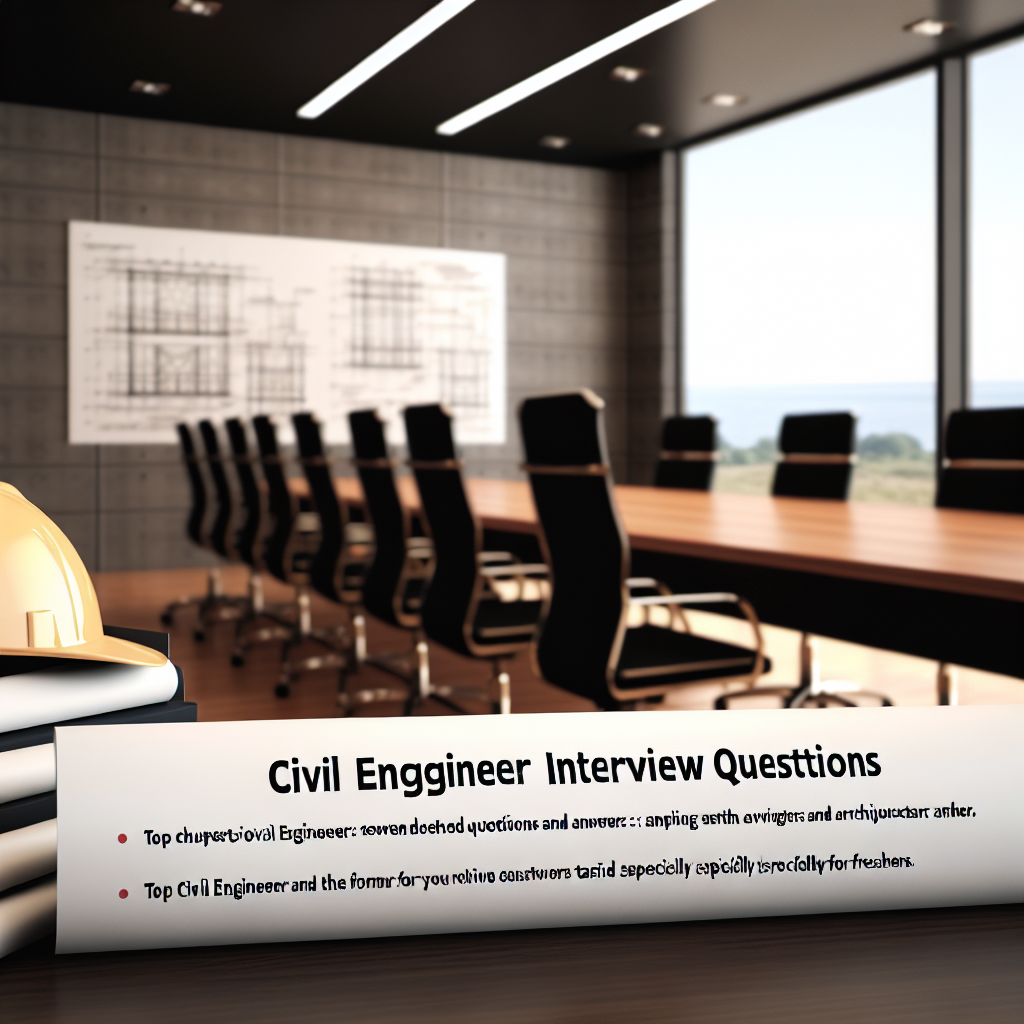Introduction to Civil Engineer Interview Questions for Freshers
Embarking on a civil engineering career often involves preparing for interviews that test your technical knowledge and problem-solving skills. In this article, we will explore the top interview questions and detailed answers tailored specifically for freshers, equipping you with the confidence needed to succeed in your civil engineering interviews.
Understanding Core Civil Engineering Concepts and Interview Expectations
Before diving into specific questions, it’s essential to grasp what interviewers seek from civil engineering freshers. Typically, they assess your fundamental knowledge of materials, construction methods, and structural design, as well as your problem-solving ability, communication skills, and understanding of safety protocols. A well-prepared candidate demonstrates both technical proficiency and the capacity to apply knowledge practically.
Common areas covered during interviews include:
- Basic principles of structural analysis and design
- Construction project management
- Design codes and standards
- Material properties and testing
- Health and safety regulations
With these expectations in mind, let’s explore some most frequently asked interview questions for freshers and how to approach them effectively.
Common Civil Engineer Interview Questions and Sample Answers
1. Can you explain the difference between dead load, live load, and environmental load?
Dead loads refer to the permanent static forces due to the weight of structural elements like beams, floors, and walls. Live loads are temporary or dynamic forces caused by occupancy or movable objects, such as furniture or people. Environmental loads encompass forces exerted by natural elements, including wind, rain, snow, or earthquakes. Understanding these concepts is crucial for designing safe structures that withstand diverse forces over their lifespan.
2. What are the essential considerations when preparing a construction project estimate?
When preparing a project estimate, factors like material costs, labor charges, machinery expenses, project duration, and overhead costs should be carefully analyzed. It’s also vital to consider site-specific conditions, environmental regulations, and contingency funds for unforeseen circumstances. Accurate estimates reflect meticulous planning, reducing risks of budget overruns and project delays.
Conclusion
Preparing for civil engineering interviews involves understanding core concepts, national standards, and practical knowledge. By mastering common questions and focusing on clear, precise answers, freshers can leave a positive impression and demonstrate their readiness for real-world challenges. Continuous learning and thorough preparation are key to starting a successful civil engineering career with confidence.
